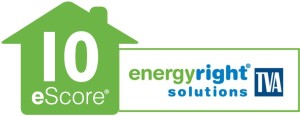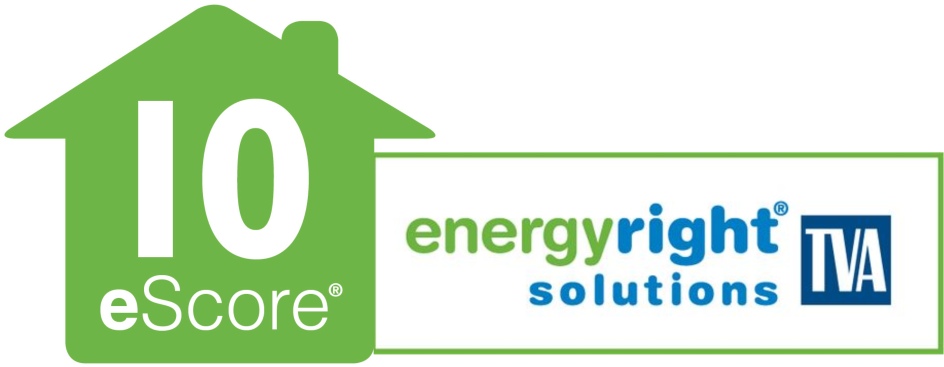Outrageous utility bills, loss of energy and efficiency, and outdated systems have led MLGW to create, test, and implement a unique but innovative energy-efficient utility system geared towards customers and potential future cost savings. Sure, many think that MLGW has somehow conspired against their clients to jack up energy pricing, and charge them excessive yet unnecessary fees; but in reality the opposite is quiet true.
customers and potential future cost savings. Sure, many think that MLGW has somehow conspired against their clients to jack up energy pricing, and charge them excessive yet unnecessary fees; but in reality the opposite is quiet true.
Memphis and the Tennessee Valley Association actually have one of the lowest energy rates in the country, yet we account for the highest usage rates per square foot. Put simply, we use a lot of energy! The goal of MLGW is to use less. Why? Because constant increases in energy usage could potentially present the need to build a new power plant to increase supply. Not only would this be an intensive undertaking, I don’t think many people would want such a massive construction in their backyard. This is why they have come up with a much more innovative and cost-effective solution to help conserve current energy usage, while making such an endeavor appealing to their client base.
This new residential energy efficiency program isn’t just for homeowners either. The aspects of it can potentially cater to the REALTOR base as well, and the more it becomes known, the more it can be used as a leveraging tool for your buyers or sellers. Although individuals are becoming “greener” and making more conscious decisions about the environment, many still do not consider average utility costs or similarly related expenses when purchasing a home. Likewise, many sellers do not market their home or its’ value with energy efficiency in mind. The two most significant factors in energy bills are consumption and weather.
The average E-SCORE for Memphis is a 5, based on the 10 dimensions specified by TVA Certified Experts and MLGW engineers. A higher ranking home like a 6, 7, or 8 could mean more money for your sellers. In contrast, a lower than average score could help your buyers negotiate on inspection related tasks or a reduction in a home’s asking price. We all know that new HVAC’s are one of the priciest updates to make on a home, so why not use this as a marketing tool if your clients have made recent renovations?
The E-SCORE program and evaluation works this way: first, MLGW will bring in evaluators to see how you can modify your home to be more energy efficient. Sign up is easy, you just go online to register and set up a time, and they will see you within that week. You will get a full breakdown of data and picture comparisons of your systems compared to the correct standard systems. This includes items such as attic insulation, duct sealing, HVAC replacement, windows and doors, heat pumps, and water heaters (just to name a few).
The evaluator will give you a list of improvements that can raise your home’s E-score and give you advice on what should be done first, so you get the biggest bang for your buck! They can also show you various impacts of what certain paths will look like (i.e. choosing to seal your ducts, before installing new HVACs or vice versa).
So what are the financial incentives for choosing to make the suggested improvements on your home? Not only do you help lower your monthly energy costs, resulting in long-term utility bill savings, you can also qualify for E-Score rebates. There is no maximum rebate per homestead, which means you can continue to make improvements on your home as your budget allows. No need for you to file paperwork, follow-up about the rebate, or submit anything. The contractor will submit everything needed, and your score will automatically be changed. (*Note that in order to qualify for any rebate listed, a contractor from MLGW’s Quality Contractor Network must be used).
If you have already made improvements to your home, go ahead and have an E-Score done as well. You may already be a 10, and not even know it! Once you have a score, it will automatically be updated for you every time an improvement is made, so no need to re-order.
The ultimate goal for MLGW is to eventually have a home’s ESCORE as a line item within the MLS system. Similar to a home inspection, an E-Score will identify energy related issues that can be used as a negotiating tool during the closing process. Until vast awareness and common knowledge of the program takes hold, the leverage and negotiation potential of E-Score’s will ultimately function on a case to case basis, in terms of what your clients are willing to come to an agreement on. But do not be surprised if the near future of real estate sees an upswing in energy awareness and conservation that will hinge on the use of E-scoring in buying power.
For more information on how to get your E-score, please visit https://www.2escore.com/ .
 The Kathy Webb team, promotes the use of the E-Score system. Get more information at your next closing!
The Kathy Webb team, promotes the use of the E-Score system. Get more information at your next closing!

